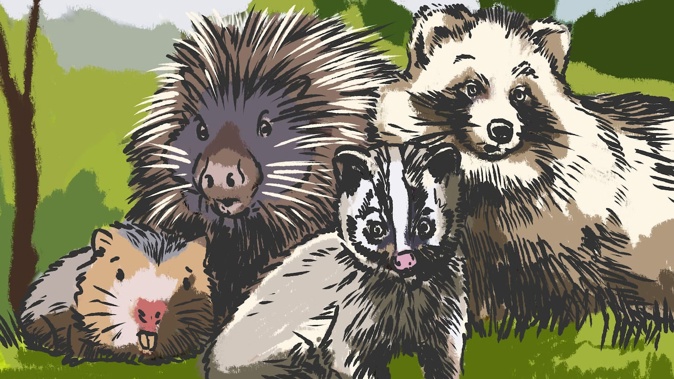
Scientists have fresh evidence to help answer the Covid-19 pandemic’s most contentious question: what started it?
Nearly five years since the novel coronavirus began spreading in Wuhan, China, researchers still haven’t been able to conclusively pinpoint its origins – but they’re now a step closer.
A major new study adds more weight to the likelihood the pandemic began in the Huanan Seafood Wholesale market, rather than from a lab leak, as has been widely debated in the US.
And it narrows down the list of animals that plausibly could have carried the virus before it jumped to humans, beginning the global crisis that’s caused more than 7 million confirmed deaths so far.
The common raccoon dog, a susceptible species that carried the preceding SARS-CoV virus in 2003, was found to be the most genetically abundant animal among the more than 800 samples.
Other animals picked up in the sampling included masked palm civets, hoary bamboo rats and Malayan porcupines.
On January 1, 2020, after the animals were removed, and just hours after the market was closed, investigators from the Chinese Centre for Disease Control and Prevention sampled floors, walls and other surfaces.
A new analysis of those samples, published in scientific journal Cell, presents the shortlist of animal species most likely to have been the virus’ intermediate hosts before it “spilled over” into humans.
 The common raccoon dog (pictured) is one animal that could have set off the coronavirus pandemic. Photo / Eddie Holmes via the New York Times
The common raccoon dog (pictured) is one animal that could have set off the coronavirus pandemic. Photo / Eddie Holmes via the New York Times
While the data couldn’t prove whether the animals may have been infected, the researchers say it could now be used to help trace where the potential hosts came from.
“This paper adds another layer to the accumulating evidence that all points to the same scenario: that infected animals were introduced into the market in mid to late November 2019, which sparked the pandemic,” said study author professor Kristian Andersen, of US-based Scripps Research.
University of Otago evolutionary virologist professor Jemma Geoghegan said it was “very likely” from the new study that one of the species sold at the market passed on the virus to humans.
“Indeed, all of the evidence regarding the origins of SARS-CoV-2 that has been peer-reviewed and published in reputable journals to date, also supports this finding.”
Jamie Morton is a specialist in science and environmental reporting. He joined the Herald in 2011 and writes about everything from conservation and climate change to natural hazards and new technology.
Take your Radio, Podcasts and Music with you









